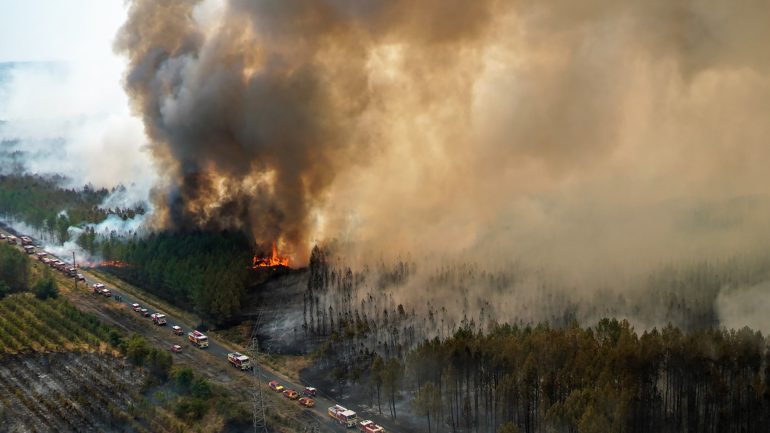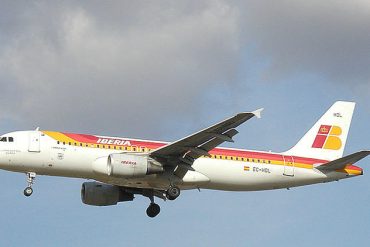Thus: 08/12/2022 6:26 PM
Forest fires in France are releasing a record amount of CO2 into the atmosphere. According to the researchers’ calculations, this amount roughly corresponds to the annual emissions of 790,000 cars. It’s a lot, but “manageable” on a global scale.
Forests bind carbon dioxide (CO2), a climate-damaging gas. If forests burn, CO2 is released again. Based on satellite data, researchers have now calculated how large amounts have been released by wildfires in southwest Europe this summer.
According to the European satellite environmental observatory CAMS, in France alone, the period from early June to August 11 contained about one million tons of CO2. This roughly corresponds to the annual emissions of 790,000 cars.
According to CAMS, this is a new record for France: over the past two decades, fires have released an average of about 300,000 tons of CO2. The only year in France to match this summer’s record was 2003 – the year satellite surveillance was first used. At that time, wildfires released about 650,000 tons of carbon dioxide amid severe heat and drought between June and August.
According to CAMS data, a new record for CO2 emissions from wildfires was also set in Spain this summer – although earlier than in France. In Portugal – where there were also several wildfires – CO2 values over the past several years were significantly higher than in 2022.
1.76 billion tons of CO2 released worldwide
In France, the fire brigade is mainly concerned with forest fires near Bordeaux in the south-west of the country. A 40-kilometer fire front in the Gironde and Landes departments on the Atlantic coast has already destroyed 7,400 hectares of pine forest since Tuesday. 10,000 people had to be brought to safety, some of them a second time. The fire is a fire that flared up again and had already erupted in mid-July.
Mark Parrington, a senior scientist at CAMS, said CO2 emissions from fires in France are basically “manageable” compared to global wildfire emissions. Last year, heat and drought-related fires released 1.76 billion tons of CO2 worldwide.

Introvert. Proud beer specialist. Coffee geek. Typical thinker. Pop culture trailblazer. Music practitioner. Explorer.





